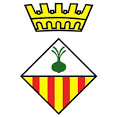I promote and accompany organizational transformations, putting people at the center throughout the process and introducing continuous improvement as an essential tool for self-analysis and updating
Studies, Skills and Profile
- 2024Digital Transformation: Tecnologies and their practical applications (MIT)
- 2024Address conflicts with systemic tools (EMANA Formación)
- 2018Coach Training Program (ACSTH)
- 2006 2007Attended postgrad. course in Public Management (ESADE)
- 1996 1997Master’s Degree in Finance (IDEC-UPF)
- 1992 1996Bachelor’s Degree in Economics (UPF)
Professsional profile:
- Accessible but at the same time demanding leadership, based on strategic co-decision with top-level management and operational delegation.
- Ability to quickly detect areas of improvement and people in the organization with scope for professional growth.
- Direct, close and honest communication.
- Executive and result-oriented.
- Core values: consistency, integrity and rigor.
Career path
Director of General Services

AGENCY FOR EVALUATION AND FORESIGHT IN EDUCATION
10/2025 currently
The Agency for Evaluation and Foresight in Education, operational since July 2025, is the public body responsible for promoting independent evaluation and analysing possible future scenarios to anticipate the needs, challenges and opportunities of the Catalan education system. Its mission is to contribute to the improvement, excellence and equity of educational policies.
It is attached to the Department of Education and Vocational Training of the Generalitat of Catalonia.
Organizational Transformation consultant

CONSULTANT
11/2024 09/2025
Managing Director (Interim)

REBÉS - FERRER
06/2024 10/2024
REBÉS-FERRER is a law firm specializing in the provision of legal and advisory services in all areas of business law, offering efficient, innovative and practical solutions to meet the needs of clients, being one of the differentiating factors of REBÉS-FERRER proximity with the customer.
REBÉS-FERRER has offices in Barcelona, Tarragona and Lleida.
Managing Director

CHAMBER OF COMMERCE OF BARCELONA
11/2021 1/2024
Budget: 24,6 M€ (2023)
Staff: 170 (2023)
Companies BCN Chamber: 395,913 (2023)
Created in 1886, the Official Chamber of Commerce, Industry, Services and Navigation of Barcelona is a public law corporation with a dual function: on the one hand, it represents, promotes and defends the general interests of commerce, industry, services and navigation and, on the other, it provides high value-added services to companies to improve their competitiveness, whether in the field of digitalisation, internationalisation, innovation, training or access to alternative financing channels.
Managing Director

UNIVERSITAT ROVIRA I VIRGILI
06/2019 11/2021
Students: 14.000 (2018 - 2019)
Budget: 110 M€ (2019)
Teaching staff: 1.175 (2019)
Administration staff: 700 (2019)
Universitat Rovira i Virgili was created in 1991. In line with its aim of territorial decentralization, the university currently has 12 centers located in Tarragona, Reus, Vila-Seca, Tortosa and El Vendrell and offers a wide range of studies in a large number of academic disciplines.
The Managing Director reports hierarchically to the Rector and is a member of the Management Committee, the Executive Board, the Senate and the Social Council of the university.
In 2020, since it was the turn of the Rector of the URV to assume the presidency of the Catalan Association of Public Universities, the General Manager of the URV was, in turn, nominated as the Coordinating Manager of public universities, reporting to the Inter-university Council of Catalonia and the Catalan Government.
Financial Director

HOSPITAL CLINIC OF BARCELONA
11/2015 12/2017
Community Hosp,: 300,000 inh. (2017)
Tertiary referral Hosp.: 1,7 M inh. (2017)
Budget: 475 M€ (2017)
Employees: 4.500 (2017)
From 1996, the Hospital Clinic has been structured and organized in institutes, which respond to different medical and surgical specialities. These institutes have their own budget and management team and work with autonomy within the Hospital’s general framework.
As the Financial Director I had hierarchical responsibility over the following departments in the Financial Area: Accounting and Budgets, Contracting, Invoicing, Suppliers, Treasury, Economic processes and Reporting. I was also responsible for the functional management of the 17 Financial Heads of the Hospital’s institutes, areas, centres and cross-sectional departments and for the Hospital’s administrative staff (+500).
I was a member of the Management Committee and of the Executive Board of the Hospital, as well as being a permanent advisor to the Hospital’s Governing Council.
Manager of the Area of Governance and Economy

SANT CUGAT CITY COUNCIL
07/2011 07/2015
Population: 88.000 inh. (2015)
Budget: 119 M€ (2015)
Employees: 509 (2015)
In 2011 the Sant Cugat City Council organized itself in three large areas: Services to the People, Territory and Urban Quality and Governance and Economy. The three managing directors reported both to the Manager of the City Council and their respective deputy Mayor.
As the Manager of the Area of Governance and Economy I was responsible for the departments of Economic Services; Quality, Processes and Document Management; Corporate Information; Trade; the Municipal Employment Service and Economic Promotion. I also liaised daily with the Auditing Department and the Treasury Department.
In 2012 I added to my responsibilities the ones of Treasurer of the Fundació Sant Cugat Actiu and later, in 2014, I was appointed a member of the Executive Delegate Commission of Fundació Sant Cugat Actiu.
Manager of the Area of Central Services

SABADELL CITY COUNCIL
09/2007 07/2011
Population: 205.000 inh. (2011)
Budget: 190 M€ (2011)
Employees: 1.530 (2011)
In 2007, the Sabadell City Council organized itself in five areas: Presidency; Central Services; Services to the People; Relations with Citizens and Public Spaces; and the area of City Planning.
As the manager of the Area of Central Services I was responsible for the following services: Human Resources, Health and Safety at Work, Economic Services, Corporate Data, Information Technologies, Tributary Management and Collection, General Services, Treasury and Trade.
I also liaised daily with the Auditing Department and the Legal Advice Department.
In 2009 I added to my responsibilities that of Manager of IT Services for Sabadell City Council (IAS), an autonomous organization assigned to the City Council.
Managing Director

CATALAN INSTITUTE FOR CULTURAL INDUSTRIES (ICIC)
05/2002 09/2007
Budget: 70 M€ (2007)
Employees: 130 (2007)
ICIC (ICEC at the present time) is a public company that was created in 2001 and assigned to the Department of Culture of the Catalan Government. It is in charge of the grants and soft credits designed for the cultural companies of Catalonia, as well as of their international promotion in fairs and specialized markets.
My responsibilities as a Managing Director were: to establish the goals and work criteria of the internal departments (Human Resources, Accounting and Budgets, Legal Advice and Communication), negotiate the labour conditions with the unions, coordinate the global activity of ICIC, fix the agenda and attend, together with the Director, to the monthly meetings of the Administration Council, and advice and substitute the Director when considered necessary.
Head of Administration

CATALAN INSTITUTE FOR CULTURAL INDUSTRIES (ICIC)
05/2001 05/2002
Budget: 14 M€ (2002)
Employees: 14 (2002)
In 2001 I was responsible for the departments of Human Resources, Accounting and Budgets and Legal Advice. Together with the Director, I defined and scheduled the lines of performance that had to be implemented and the short and mid-term goals to be achieved.
Economist

DEPARTMENT OF CULTURE - Accounting and Budget Department
07/1997 05/2001
As the Economist of the Accounting and Budget Department my responsibilities were: to review the annual audits of public companies and autonomous organizations assigned to the Department of Culture; to study the proposals for contracting new debt or for re-financing existing debt when it required the additional guarantee of the Department, and to advice the top management of the Department in economic matters.
Contact and Personal Data
Eva Borràs Balcells
Tell me